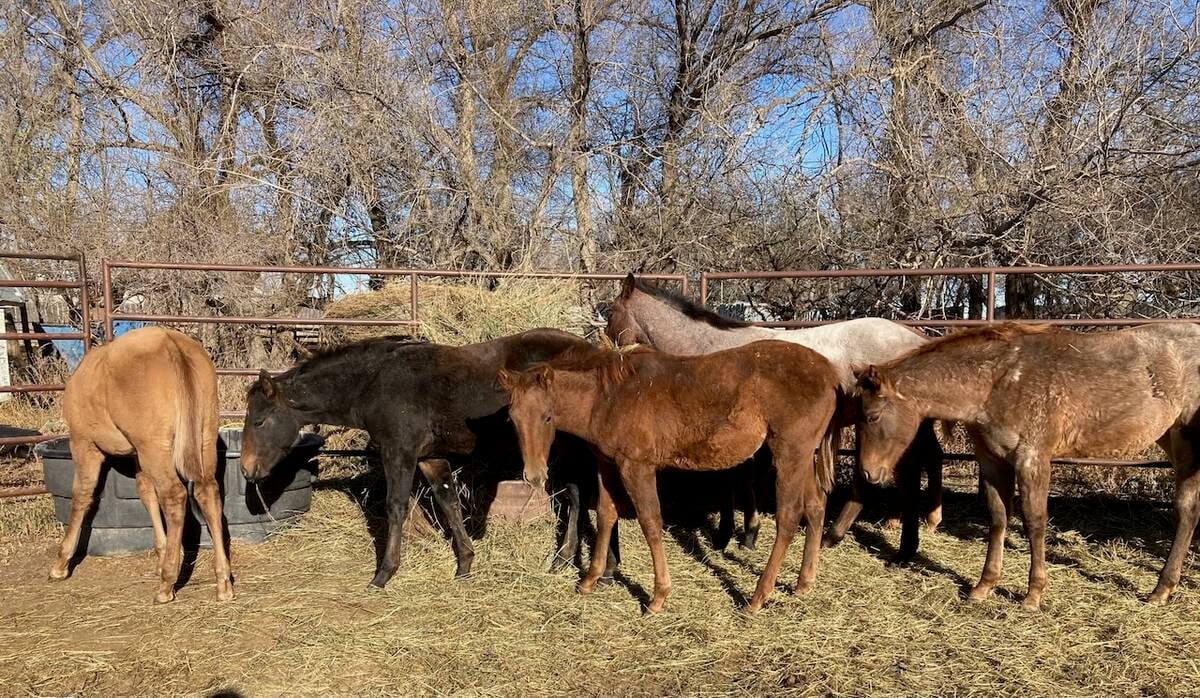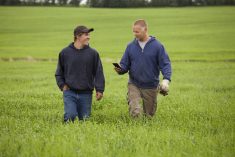When you get married, you blend two different styles of family dynamics, and it takes a while to adjust.
According to the 2011 Canadian Census, 12 per cent of Canadian families involve step-parenting. You can imagine the adjustments needed when these stepparents run farms.
In our coaching practice, we help blended ag families navigate this transition. Here are some key tools we use.
Read Also

Fall clean-up and bringing animals home at the Eppich ranch
Winter is approaching which meant emoving old fence rows and bringing livestock home before the cold and the snow at the Eppich family ranch.
Communicate effectively. Having direct one-to-one conversations helps get to key issues quickly. Parents in blended families are wise to foster individual relationships with each adult child to build trust and respect. It’s important to show up with kindness in your words and not participate in family gossip.
Our team uses a personal style indicator (PSI) to help family members learn what their key personal styles are and how they impact their ability to do tasks, keep track of details, influence their environment and relate to people. Ask for a sample PSI at elainefroese.com/contact.
Manage expectations. If you frame your blended family as a team, then you as parents can consult with each other to break down assumptions and present a united front to the rest of the team, your family.
Blended families can have a lot of loss to process, which can fuel sadness, anger and fear. Try asking open-ended questions like: “What are you afraid of with our farm transition? What keeps you up at night? What do you need in this moment of our transition journey? What do you expect from me as your parent? And as an owner of this farm?”
Embrace conflict resolution. Everyone in a blended family is better off when conflicts are resolved, and this can be viewed as a business risk management strategy.
An important tool for talking about tough issues is the ability to come from curiosity and not judgment. You need to explore possibilities and create solutions. You learn to be OK with expressing deep emotions in a safe and respectful place and manner. You put yourself in the shoes of the other person to gain their perspective. Don’t fight in front of your kids, even those who are now parents themselves.
Adopt new traditions for your new family. Thanksgiving is a classic example of how folks like to celebrate in certain ways. This may be a good time to ask what is meaningful to carry on, and what expectations and traditions are no longer workable.
Set a good example. Model the behaviour you want to see in others and embrace differences. In our family, we say, “different is not wrong, it is just different.”
We’ve also experienced a very powerful adult child express his forgiveness to his stepmother in a family farm transition meeting. His step sibling said, “I want to be like you. That expression of forgiveness was very powerful.” You need to draw deep compassion for adult children who have varying needs.
Share the decision-making power. Figuring out how to manage blended families is key for many farm and ranch founders as they let go of equity and decision-making power.
It’s important to have family business meetings with all your blended family members, including heirs and non-farm heirs. This way, expectations can be managed and your direction and intentions for transferring management and ownership are clear.
It is very powerful when you can solve problems together and everyone has an opportunity to understand why certain decisions were made.
AgriSuccess, a Farm Credit Canada publication, has a good article on farm transition planning in its June 2023 issue. It includes the following blended family checklist for helping protect the farm business when farmers remarry.
- Sign a pre-nuptial agreement. It clarifies what each party owned coming into the relationship and how it would be split coming out.
- Update wills. New relationships demand new wills.
- Update powers of attorney. Do you want your ex-spouse deciding what happens to your financial affairs or making medical decisions?
- Review beneficiaries on life insurance, RRSPs, and other investments. Make sure the designated beneficiaries match what the will says.
- Document financial transactions between spouses. Loans between parties should indicate amounts and repayment terms.
Opportunity for reflection
My week before Canadian Thanksgiving is usually full of phone calls and emails asking for support on how to manage the expectations of getting together with family when there are tense dynamics.
Thanksgiving is an opportunity to reflect on how you are showing up as a decent, kind, compassionate person. Are you willing to accept that other folks may see the world differently than you do? Can you explore ways to find understanding of the vision for the family and the farm?
I can see the teary eyes of the folks who come up to me after I speak at a conference. They want to know how to deal with blended families when the expectations of each adult child are not workable or realistic for the parents’ financial goals and abilities.
Every family is messy and has issues. Some families are proactive and are willing to work out ways to create harmony through understanding. Other families may have members who are impatient and self-centred, and avoid any kind of hard conversations.
You get to choose.
I wish you could have been present at our stepfamily meeting with adult children around the table, passing the Beanie Baby bull talking stick along as they expressed how grateful they were to finally understand why decisions for transition were being made, and that their input was being respected.
Make your Thanksgiving different. Reach out. Adapt to others. Share deep appreciation for each other and the many gifts you have been given as a child growing up in agriculture in one of the best places on earth.
Give thanks with a grateful heart. Honour your parents. Be a team.
Be courageous. Blended families can work.
















